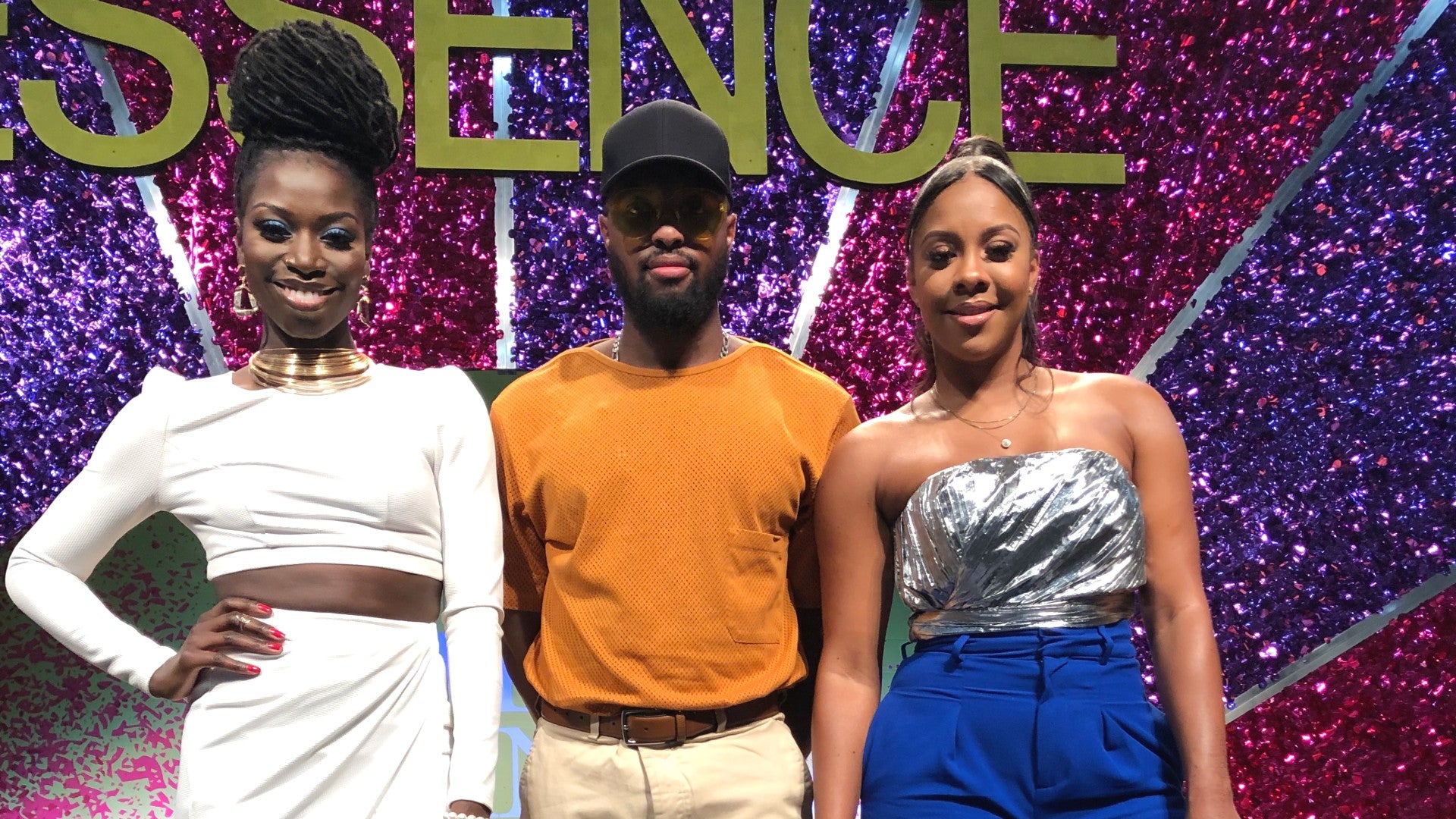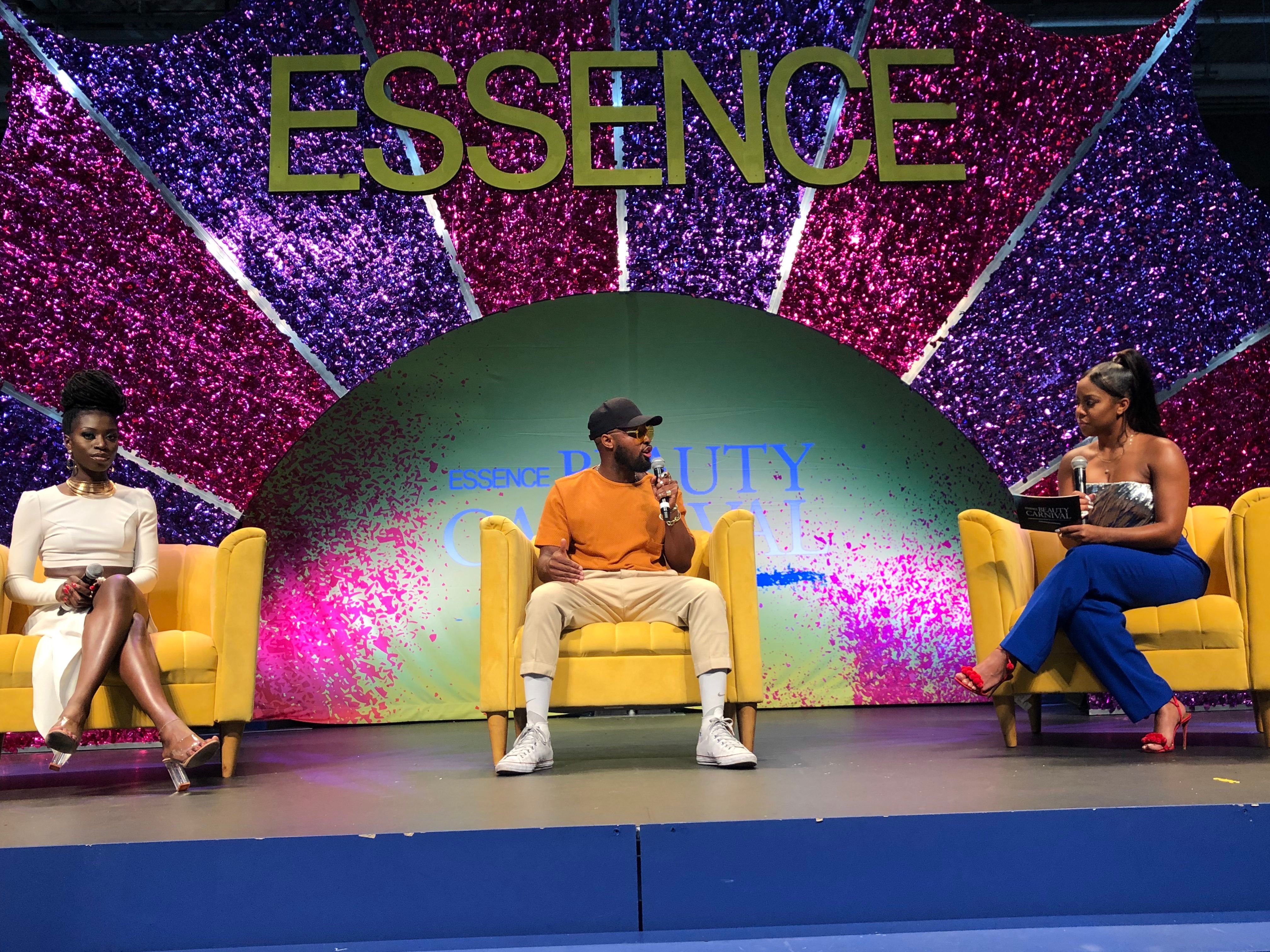
Walking onto a set and being one of only two Black people is a reality for Ethan Miller. It’s also the inspiration for his work in diversity and inclusion in the beauty, style, and creative spaces. Joined by model and musician Demi Grace, and hosted by Miss Diddy, the talent manager held a conversation on the importance of advocating for Black beauty on the Beauty Carnival main stage before the closing of Essence Festival.
“There was a specific moment when I woke up one day and I looked in the mirror and I was like ‘what am I doing?’ as I worked my ass off for these really young privileged mostly White girls from Beverly Hills who don’t really need the money and complain the most,” he recalled.
“And there was just a moment when I was like I have a lot of power with the position that I’m in, and I have the resources to positively affect people’s lives. So I just decided that I want to work with predominantly Black talent and I want to help change the narrative about the way we see ourselves and the way that popular culture interprets us.”

The statement prompted the enormous applaud that it should. Neither Ethan Miller nor Demi Grace started at the top. But they’ve worked hard, and have also been advocated for, to get to the positions that they are now in. With that power comes a responsibility that they very much welcome—opening doors for young Black creatives coming behind them.
Miller, with his networking and community platform The Fabric, tries to ensure that representation doesn’t just exist as a trend. And Grace, who was the first Black model to do an international ad campaign (Pantene’s Gold Series) empowers young creatives to demand their worth, and not compromise on their vision for themselves.
“You have to believe that you can do literally whatever you want to do. You have to first see yourself as that person and conduct yourself as such and don’t compromise,” she told the attentive crowd. “I saw more success when I became more of myself and stopped trying to be what I thought the casting directors wanted. People love authenticity, they’re thirsty for that. If it makes someone uncomfortable that’s not your problem.”
Fortunately for many creatives, social media has changed the way brands tap talent. Black influencers can have a large impact on how their followers interact with a brand, positive or negative, in one tweet, post, or story. But they must know their worth and not let brands get away with just ticking the diversity and inclusion box by having them in a campaign, according to Miller and Grace. And for Miller, the only way to ensure this is by having that diversity in every facet of a shoot—from the casting agent to the models, hair stylists, makeup artists, and of course, the photographer.
“The industry is very nepotistic and there’s so few people that look like us at the top that it’s very hard to infiltrate. It’s necessary to give Black creatives to tell our own stories. We often don’t get to do that because the Black experience is not lensed in a way that is nuanced like a White experience,” he said.
“Our stories as Black people throughout the world are so interesting and powerful. I’m in a place where I can let Black creatives do that and it’s our turn to have a moment in the spotlight. We contribute so much to popular culture.”